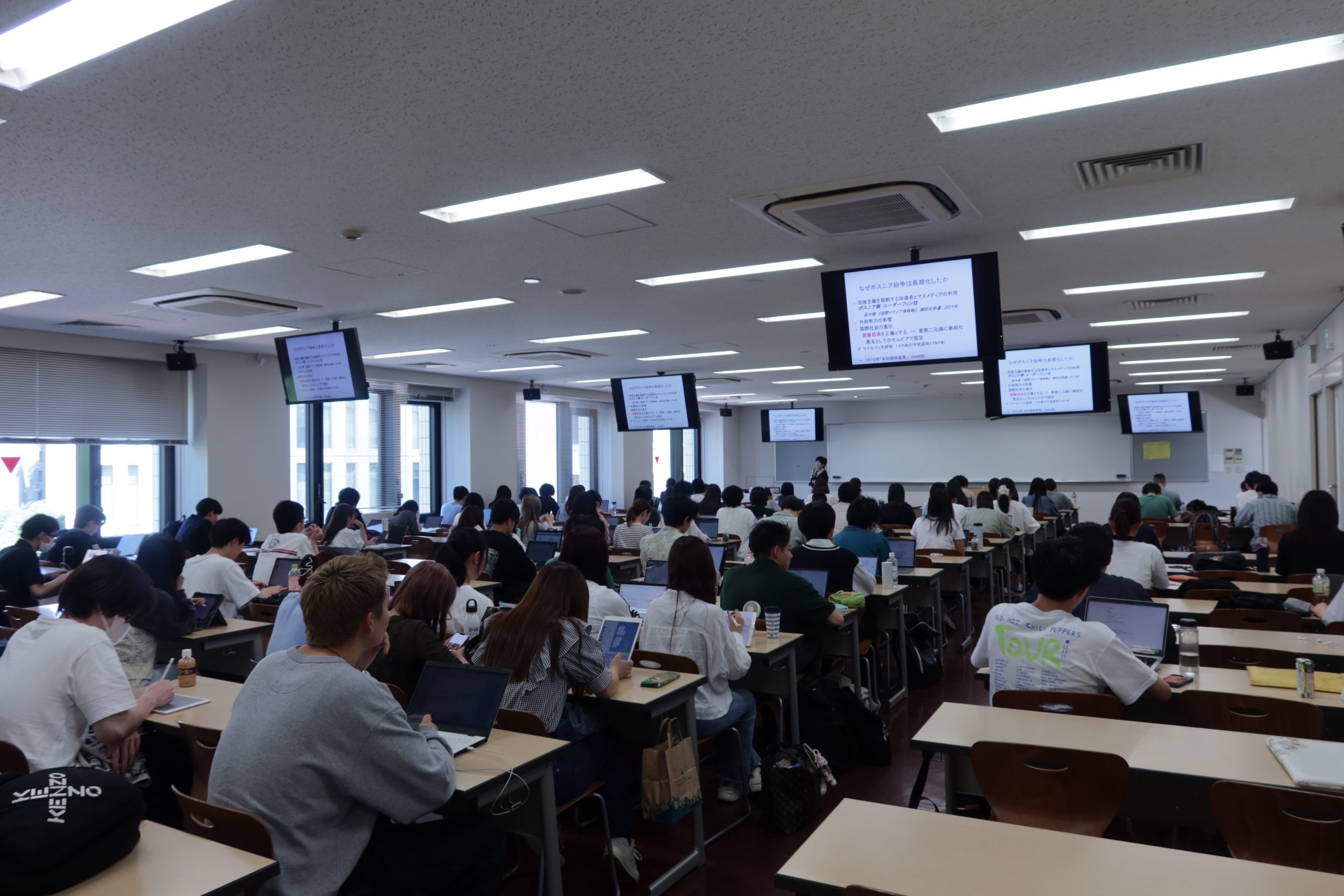Class Introduction:Peace Studies

Comment from Professor:
“Peace studies” has been the most important subject to me ever since I became a teacher.
Many new students ask me, “What do we learn in Peace Studies?” In essence, Peace
Studies is interdisciplinary and allows for a variety of approaches. In this class, we
thoroughly explore “What is peace?” and “How can it be achieved?” from the perspectives
of international politics and international law. Can you remain calm in the face of issues
like those in Ukraine or Israel-Palestine? That intolerable feeling is the starting point of
Peace Studies. Unfortunately, wars and conflicts, as seen in the media, cannot be
resolved merely by denying all military power and violence. Paradoxically, achieving
peace may sometimes require military power. Furthermore, Peace Studies covers not
only the presence or absence of war but also explores why wars, conflicts, civil wars,
poverty, and human rights violations occur, analyzing their causes and mechanisms, and
seeking solutions. However, it's important not to fall into normative theories of “how
things should be” because being detached from reality can lead to disappointment and
neglecting fact-based analysis in favor of utopian ideas. It is essential to learn various
perspectives, analyze causal relationships objectively, and develop the ability to critically
examine what we or Japan can do within the international community
Class Interview
1. Outline of the class
We consider the nature and difficulty of peace through the history of wars and conflicts.
The course primarily consists of lectures by the professor, but also involves comparing
editorials from various newspapers to understand differing views on Article 9 of the
Constitution and utilizing visual materials like “A Century on Film”.
2. Why did you decide to take this class?
I have an interest in international politics. Recently, international conflicts have become
highly significant issues, with large-scale conflicts erupting in Palestine while the
Russia-Ukraine invasion remains unresolved. Amid such international situations, I've
become aware of the difficulties and fragility of peace and wanted to learn how “Peace
Studies” addresses the concept of peace, which led me to enroll in the course.
3. What did you find attractive about this class?
Because this field deals with the ambiguous concept of peace, it covers a wide range of
eras and conflicts, and learning about movements toward peace in international politics.
The various issues within international politics discussed in class bring awareness that
current conditions are far from perfect.
4. How do you want to connect what you learned in the class to the next?
Since the course involves learning about structural peacebuilding efforts, I want to keep
a structural perspective in mind when studying individual cases of war and conflict in
other classes.
(Aoi Masuda, First-year student, Faculty of Global Studies)

1. Outline of the class
In the Peace Studies classes, fundamental questions such as “What is peace?” are
considered. When learning about what war is, and how the world seeks to prevent wars
and pursue peace, historical conflicts like the Cold War are discussed; pondering the
causes of these problems and their resolutions.
2. Why did you decide to take this class?
I decided to take the course to learn how war, a critical issue in the international
community, can be diminished and how peace can be maintained while advancing
international politics. I was also interested in international law and wanted to learn how
historical events helped shape laws and norms.
3. What did you find attractive about this class?
Even without possessing extensive knowledge of world history, the course starts with the
basics making it easy to understand and comfortable for anyone to attend. Furthermore,
the provision of various materials helps students grasp different opinions and viewpoints
on certain events fostering critical thinking skills.
4. How do you want to connect what you learned in the class to the next?
When contemplating the numerous issues arising globally today, I aim to understand
things from a multifaceted perspective, not just a fixed viewpoint, by referring to
newspapers and books as well as incorporating international norms and historical facts
learned in this class.
(First-year student, Faculty of Global Studies)
